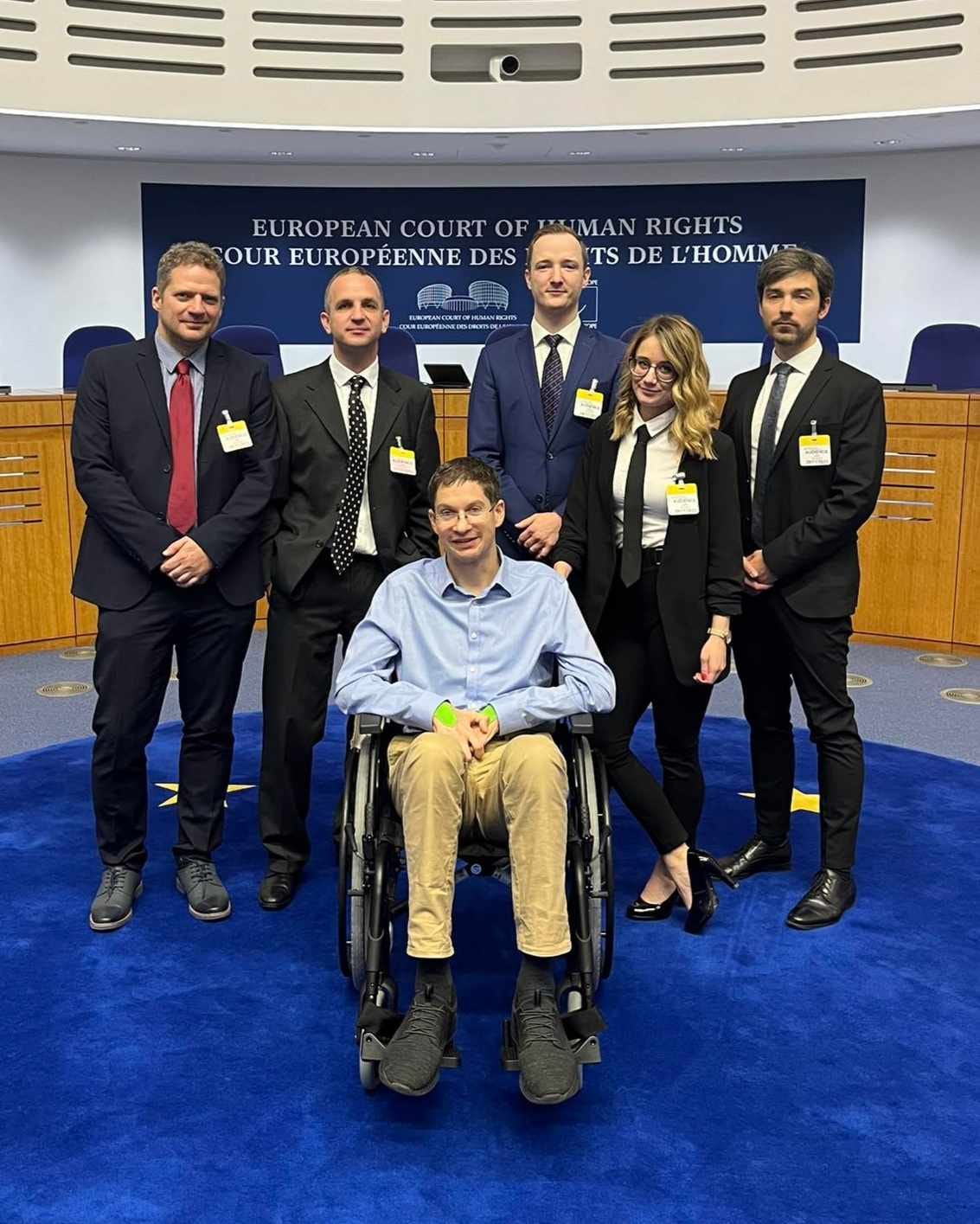Karsai v Hungary, dignity v greyzone euthanasia
Dignity and end-of-life decisions are at stake in a landmark case at the European Court of Human Rights
On the 28th November, six Hungarian lawyers appeared before the European Court of Human Rights. They are the crème de la crème in Hungary when it comes to human rights and constitutional law litigation. The case they represented was not for a client. The applicant was a lawyer of this team.

The life of Dániel Karsai, a leading Hungarian human rights lawyer came to a dramatic change last year. Mr. Karsai, a veteran of ECHR litigation, a steadfast champion of human rights is also a keen sportsman. He took his brown belt exam of jiu jitsu just two years ago.
Now he is bound to a wheelchair and he can barely stand. He was diagnosed with amyotrophic lateral sclerosis (ALS). Known in the US as the “Lou Gehrig Disease”, the syndrome causes the loss of muscle movement ultimately ending with death caused by respiratory failure. There is no known cure, only palliative care is available.
Here is a video of the change. Viewer discretion is strongly recommended.
Hungary, like many other countries, does not allow Physician-assisted Dying (PAD). More to that, the Hungarian criminal code orders to prosecute even foreign citizens assisting a Hungarian citizen in PAD outside Hungary.
Mr. Karsai wishes to have the legal opportunity to end his life before the disease progresses to its final stage. A terrifying aspect of ALS is that unlike many other terminal diseases this doesn’t mean a vegetative state. ALS does not affect mental capacity.
Mr. Karsai decided to bring the case to the European Court of Human Rights (ECHR).
ECHR is a court set up by the Council of Europe. CoE is not to be confused with the EU and its Council. CoE is an international organization aimed to promote freedom, democracy and rule of law in Europe. The governing law of the ECHR is the European Convention on Human Rights. Decisions of the ECHR are binding for member states. Hungary is a member of CoE and a signatory of the Convention.
The Court, in a rare decision, granted an expedited hearing. Mr. Karsai and his lawyers collected impressive material. Mr. Karsai also spoke. Before the hearing, they also asked any party to give their contributions to bring every possible aspect to the Court’s attention.
My contribution was about how this case touches on taboos and rites. Hungarian society is a very prude one. There is ample anecdotal evidence on how terminal patients die of “sudden unexpected multiple organ failure” in the hospital which happened in the middle of the night. Coincidentally, the whole family was there in the afternoon to visit the patient. Morphine is not mentioned.
There are intricate rites around this taboo and even forms of passive euthanasia (which are legal in Hungary) are more risky for Hungarian doctors than following the “rites”.
Mr. Karsai’s case forces the Hungarian public to face our attitudes toward death and dignity.
This is also a landmark case for the whole of Europe.
The Court can effectively decriminalize PAD all across Europe. Even if they don’t go that far, they can also make an impact. That is, if they hold that Hungary (or any other member state) does not have the right to prosecute foreign nationals if they assist a Hungarian national (or citizen of any member state) in a country where PAD is legal. This has sovereignty implications (a big theme in Hungarian politics) and fundamental impact on access to end-of-life decisions across Europe.
The ECHR is not bound to any official deadline. Experts say that a decision is not likely to take place before February.





I know it’s splitting hairs, but Karsai has not already decided to choose euthanasia for himself. He said he just wants the option available to him, when his health deteriorates to unbearable levels. He does it mostly for other people’s benefit.